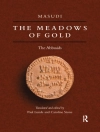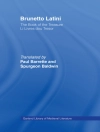The politics of Middle English parables examines the dynamic intersection of fiction, theology and social practice in late-medieval England. Parables occupy a prominent place in Middle English literature, appearing in dream visions and story collections as well as in lives of Christ and devotional treatises. While most scholarship approaches the translated stories as stable vehicles of Christian teaching, this book highlights the many variations and points of conflict across Middle English renditions of the same story. In parables related to labour, social inequality, charity and penance, the book locates a creative theological discourse through which writers attempted to re-construct Christian belief and practice. Analysis of these diverse retellings reveals not what a given parable meant in a definitive sense but rather how Middle English parables inscribe the ideologies, power structures and cultural debates of late-medieval Christianity.
Inhoudsopgave
Introduction
1 Teaching unreasonable tales: the parable of the Labourers in the Vineyard
2 Stories for revising the self: the parable of the Prodigal Son
3 Examinations of social conscience: the parable of Dives and Lazarus
4 Ethical allegories: the parable of the Good Samaritan
5 Paradox formed into story: the parables of the Wedding Feast and Great Supper
Epilogue: Writing parabolic fiction: Langland’s pardon episode
Index
Over de auteur
Dr Anke Bernau is Lecturer in Medieval Literature and Culture at the University of Manchester












